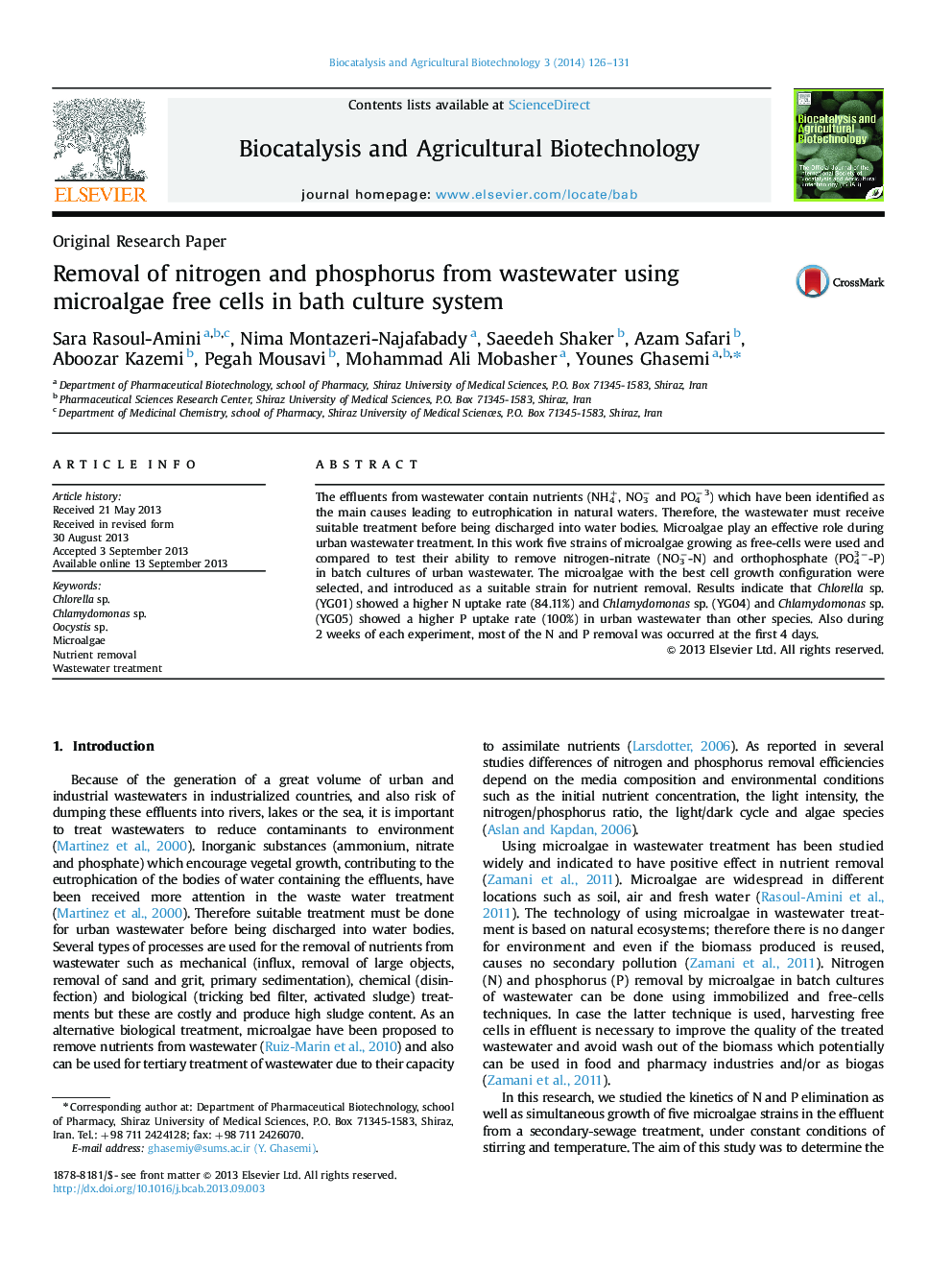| Article ID | Journal | Published Year | Pages | File Type |
|---|---|---|---|---|
| 2075497 | Biocatalysis and Agricultural Biotechnology | 2014 | 6 Pages |
The effluents from wastewater contain nutrients (NH+4, NO−3 and PO−34) which have been identified as the main causes leading to eutrophication in natural waters. Therefore, the wastewater must receive suitable treatment before being discharged into water bodies. Microalgae play an effective role during urban wastewater treatment. In this work five strains of microalgae growing as free-cells were used and compared to test their ability to remove nitrogen-nitrate (NO−3-N) and orthophosphate (PO3−4-P) in batch cultures of urban wastewater. The microalgae with the best cell growth configuration were selected, and introduced as a suitable strain for nutrient removal. Results indicate that Chlorella sp. (YG01) showed a higher N uptake rate (84.11%) and Chlamydomonas sp. (YG04) and Chlamydomonas sp. (YG05) showed a higher P uptake rate (100%) in urban wastewater than other species. Also during 2 weeks of each experiment, most of the N and P removal was occurred at the first 4 days.
